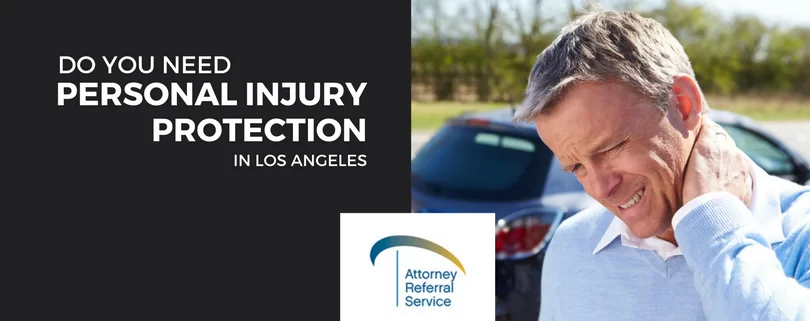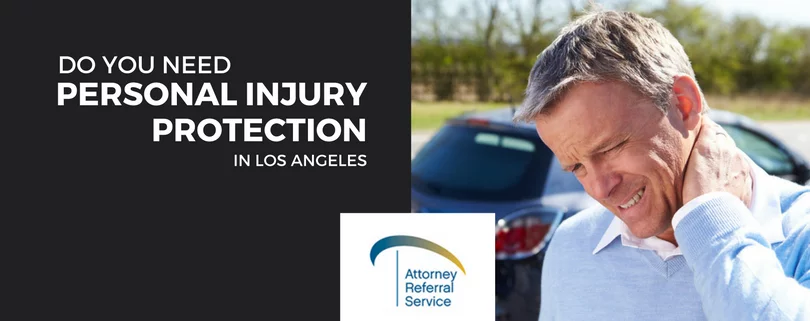Do You Need Personal Injury Protection In Los Angeles?
Do you need personal injury protection? If you suffered an injury because of the negligence of another person, we have a few tips to get you started.
Do you need personal injury protection?
Personal injury law protects people who are injured by the negligence of another person.
If you’re injured by a reckless driver, injured while in the care of a medical professional, or bit by a dog, you may want to pursue legal action. A personal injury lawyer can help you file a personal injury claim, and depending on the factors involved, seek compensation to cover the cost of medical bills, lost wages, and other expenses.
But how do you know if you can make a claim?
Let’s take a closer look.
Determining fault
The first step is determining negligence – who was at fault for the injury?
You have grounds for making a personal injury claim if the other person or party was responsible for the injury. There are four conditions which must be met before the personal injury claim can be made:
- The person or party being charged with fault must have owed you (the plaintiff), a duty of care.
- Somehow, the party being charged must have behaved negligently and disregarded this duty of care.
- The negligence led directly to your accident.
- You suffered harm as a direct result of a general accident. Your injuries are real and require medical attention.
In California, there also is a time limit for filing a personal injury claim. The state’s statute of limitations gives an injured person a two-year period from the date of the injury to go to court and file a claim. After that, there is a good chance the case will not be heard.
California limits on injury damages
In addition to the statute of limitations that limits the time to make a claim, there are other limits depending on the type of claim made.
In California, most uninsured drivers cannot recover non-economic damages from a car accident – even if the other driver is completely at fault. Non-economic damages claimed are typically pain and suffering or inconvenience.
There is an exception to this rule, however, and that is if the other driver is convicted of DUI for drugs or alcohol in relation to the accident. In this case, non-economic damages may be considered.
Also in California, there is a limitation on non-economic damages in cases of medical malpractice. Based on the Medical Injury Compensation Reform Act (MICRA), the limit is $250,000.
Worker’s compensation laws
Personal injury laws have grown out of the “common law rules” that date back to colonial times. These laws were made by judges rather than legislatures or passed in bills and statutes.
Common laws are similar but do vary from state to state. Personal injury laws, therefore, can also vary from state to state. Legislatures in different states have passed legislation or statutory laws that relate to personal injuries.
As an example, states passed legislation on worker’s compensation laws which essentially took all cases of work-related injuries outside the personal injury realm. Worker’s compensation became the primary or exclusive remedy for those who were injured.
If you are injured at work, this may be the right avenue for you to pursue. But a qualified personal injury lawyer can evaluate your situation and advise you on the right decision and course of action.
Some states have “no-fault” laws where an injured driver doesn’t have to prove another driver is “at fault” for an accident in order to receive personal injury compensation. The injured person’s insurance company pays the claim.
These laws are intended to free up the court systems and save time/money for insurance companies and consumers in general. The injured person’s insurance company pays the claim. This form of compensation is called Personal Injury Protection (PIP).
California is not one of these states. It is a “shared fault” state.
In some personal injury cases, the defendant may claim that you were partially at fault for your injury. If it is decided that you do share some level of liability, this can affect the compensation you receive from the person or company that harmed you.
If shared fault is determined in injury cases, the state of California follows a “pure comparative negligence” rule. That basically means the amount of compensation you may be entitled to receive will be reduced by an amount equal to your percentage of fault for the accident.
For example, if you are in a car accident where the other driver ran a stop sign and hit you but you were going a few miles over the speed limit yourself, you might be held responsible for 10 percent of the accident.
If the damages turn out to be $10,000, you would be responsible for $1000, and the defendant, $9,000.
California “strict liability” laws
As opposed to “shared liability” in some cases, there are other cases where “strict liability” laws apply. If a dog bites you in California, the pertaining statute says the dog owner is legally responsible in most situations, and no amount of fault or negligence needs to be shown.
The statute reads “The owner of any dog is liable for the damages suffered by any person who is bitten by the dog while in a public place or lawfully in a private place, including the property of the owner of the dog, regardless of the former viciousness of the dog or the owner’s knowledge of such viciousness.”
This is different than in other states where the “one bite rule” is allowed, and dog owners are protected the first time their dog bites someone – if they had no reason to think their dog was dangerous. But the rule does not apply in California.
So, if you own a dog in California, be aware of your responsibility to others. And if you are bitten and your injury needs care, be just as aware that you may have cause for a personal injury claim.
An attorney can strengthen your case
Many factors are considered when insurance companies value your personal injury case. They look at the likelihood your attorney will take the case to court and how the jury may see the case.
They will look at whether their client is fully at fault or whether there is shared fault. They will look at the character and reputation of both you and their client relative to the community.
And they will look to see if their client committed any crime or broke any laws or acted in a reckless way.
Having a qualified personal injury attorney will give you the best chance to make and win your case and establish the maximum compensation possible for you.
Are you in search for a certified attorney to represent you?
Let us help you find one today!




